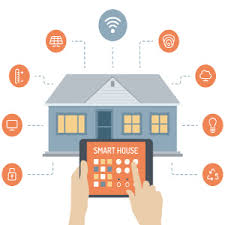 Smart home devices are not smart about tech support. The future of the smart home and older adult users has not quite arrived. It is just as well – younger device owners are struggling. According to Parks Associates, “Households with heads of household ages 35-44 are the most likely to experience technical issues with their devices.” Not surprising, since that group owns the most devices These tech-proficient users try to troubleshoot the problem themselves. And they become frustrated. Consider this understatement from Jennifer Kent of Parks: "Consumers clearly desire a self-help approach first but need more effective tools to solve the problems on their own." Otherwise, according to the Parks document, they become frustrated, write negative reviews and return the products. And these folks are aged 35-44.
Smart home devices are not smart about tech support. The future of the smart home and older adult users has not quite arrived. It is just as well – younger device owners are struggling. According to Parks Associates, “Households with heads of household ages 35-44 are the most likely to experience technical issues with their devices.” Not surprising, since that group owns the most devices These tech-proficient users try to troubleshoot the problem themselves. And they become frustrated. Consider this understatement from Jennifer Kent of Parks: "Consumers clearly desire a self-help approach first but need more effective tools to solve the problems on their own." Otherwise, according to the Parks document, they become frustrated, write negative reviews and return the products. And these folks are aged 35-44.
First they try to troubleshooting the problems. What else is a device owner to do? Today thirty-eight percent of surveyed households own at least one smart home device. You may ask, what are they? These are devices that are controllable with a smart phone or by voice, these include smart speakers, plugs, thermostats, doorbells, light bulbs smart kitchen appliances and, of course, the smart hub. If any of these ‘fail’, are difficult to set up, or don’t play well with the other devices, the baffled and relatively young user has few choices. They can search online for information (like failure status codes and what they mean), download the manual (ha!) and read that, then ask a smarter family member, and finally contact the store that sold the device.
Older adults also have a toe in the smart home water and are easily burned. According to AARP’s Tech Trends research, smart home technology has begun to reach the 50+ population, who want products to be easier to use. For example, one-quarter of those aged 70+ want to “manage or monitor smart home technology or security.” But the user experience is poor, according to responder comments: “tech needs to be simpler for seniors to self-educate or offer classes at low cost or no cost with product purchase!!!” or there is “little or no instructions on how to use.” No kidding.
But smart homes are essential to wellbeing and therefore to aging well. The view that older adults will remain technology Luddites is getting, well, old. For one thing, they will have little choice if they purchase a smart TV or need a new phone, likely a smartphone. So there they are, owning a device that requires setup, connectivity to Wi-Fi, and other sources of getting-started frustration. But without the devices, it could be daunting, especially in newer homes, just to change the home temperature, let alone print an important document. The Parks report about the frustrations of the 35-44 year old smart home customer is a forewarning – there’s trouble ahead for older adults as the number of slightly smart devices in their homes multiply. Which they will.
[In that context, see new report, The Future of Sensors and Older Adults]

 Smart home devices are not smart about tech support. The
Smart home devices are not smart about tech support. The
Comments
Free, capable, friendly tech support
Hundreds of all-volunteer non-profit technology clubs and user groups around the United States -- around the world, actually -- have been providing "strength in numbers" for solving tech problems, and eliminating the feeling that one is alone with one's technology and its problems. In the Washington, DC area there's www.wap.org for all-things-Apple, and www.patacs.org for all-things technology. Elsewhere, www.apcug2.org has a user group locator to find groups elsewhere. Most groups' meetings are accessible online; many are hybrid -- some people in-person, others remote. And members of groups belonging to APCUG have access to multiple online meetings every month.